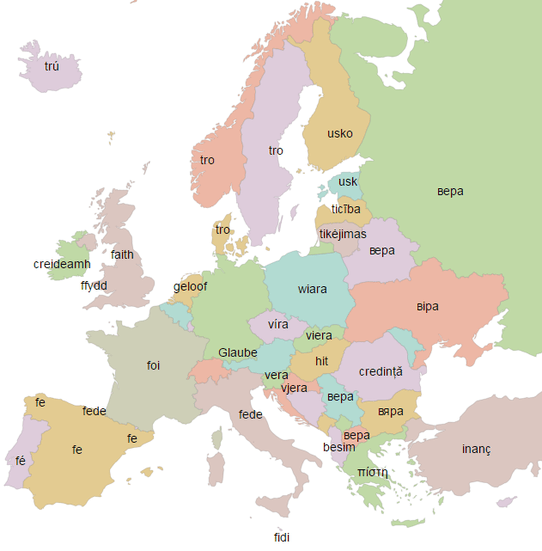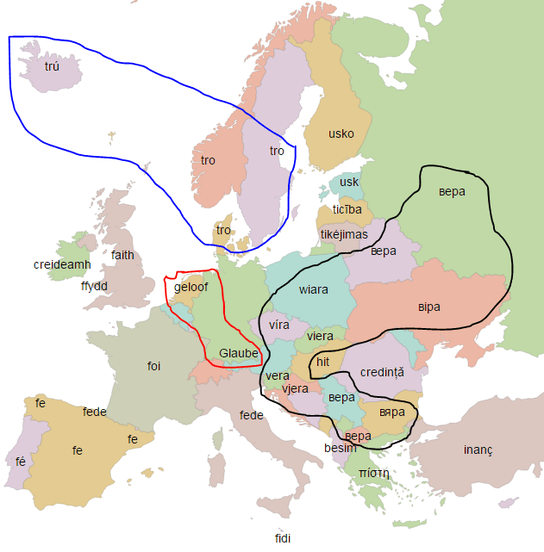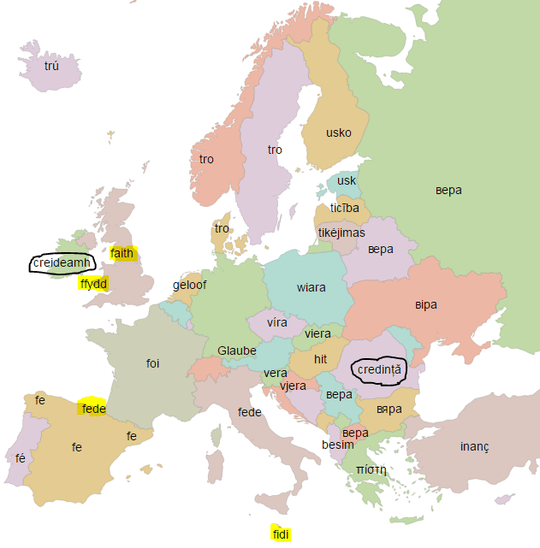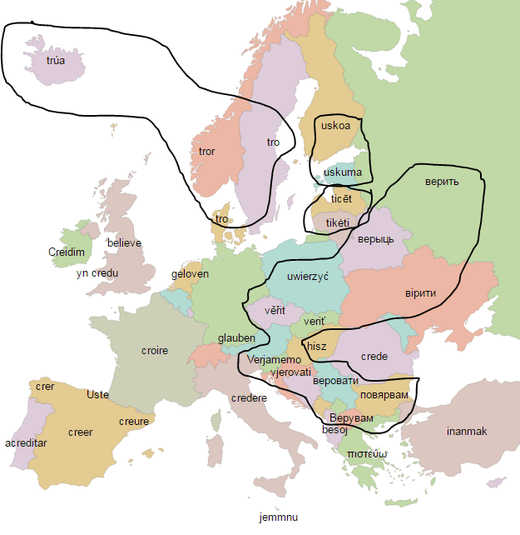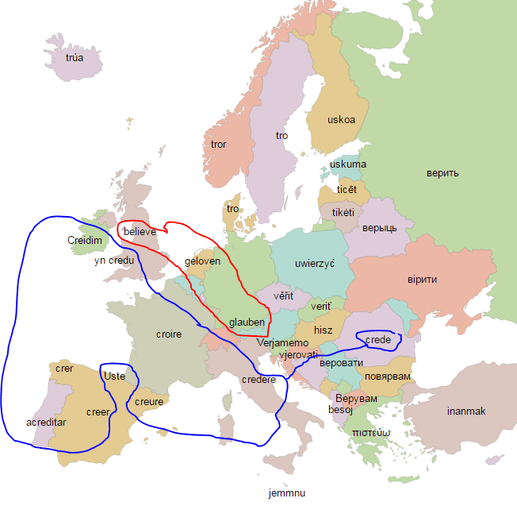The way we speak affects the way we think and the way we think affects the way we speak. And the way we speak is affected by centuries of geopolitical conflict and linguistic changes. Check out this map with translations of the word, “faith,” in various languages around Europe:
If you look at the map, you can see certain words that are similar and clumped together. The Slavic languages have something like “vera” (in the Cyrillic alphabet, “вера”). Icelandic, Norwegian, Swedish, and Danish are all from the North Germanic branch, so they are all similar, whereas German and Dutch are from the West Germanic branch, so they look like each other.
The Latin word for faith is, fides, so a cognate occurs in the Romance languages of Italian, French, Spanish, Portugese, Catalan, and Galacian. No big surprise there. (Romance language means it’s from Latin, the language of Rome)
English, Welsh, Basque and Maltese are not Romance languages, though, and they all have words for “faith” that are similar to Latin. This is probably because speakers of Latin and other Romance languages influenced these areas over the years. Interestingly, Romanian (a Romance language) and Irish (a Celtic language), both share a different Latin root, credo, which is a verb meaning “I believe.”
